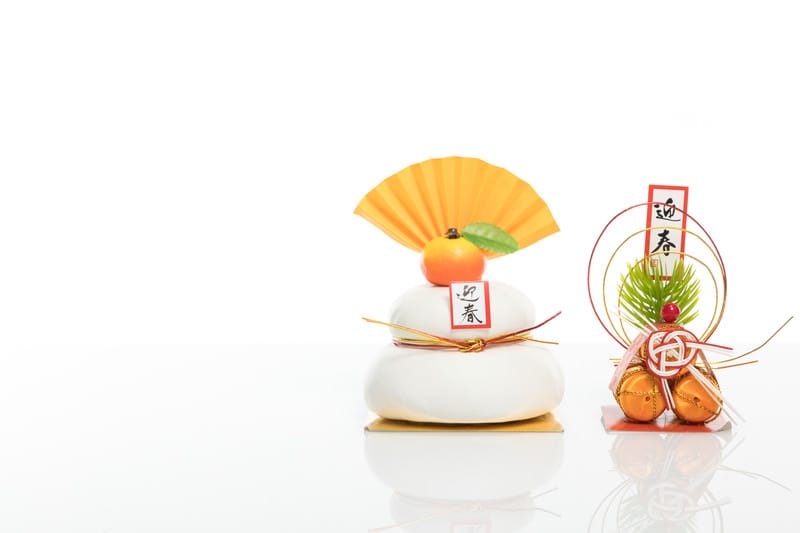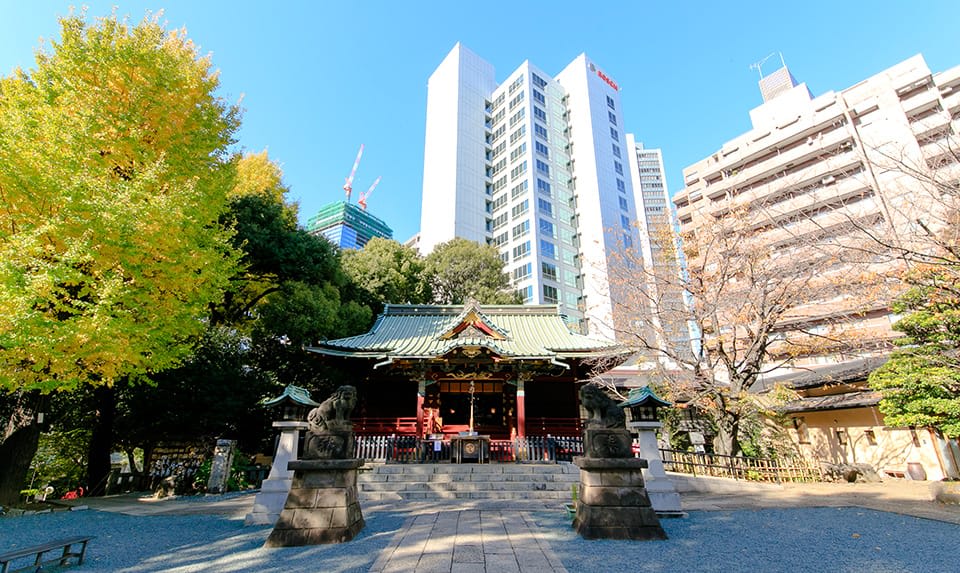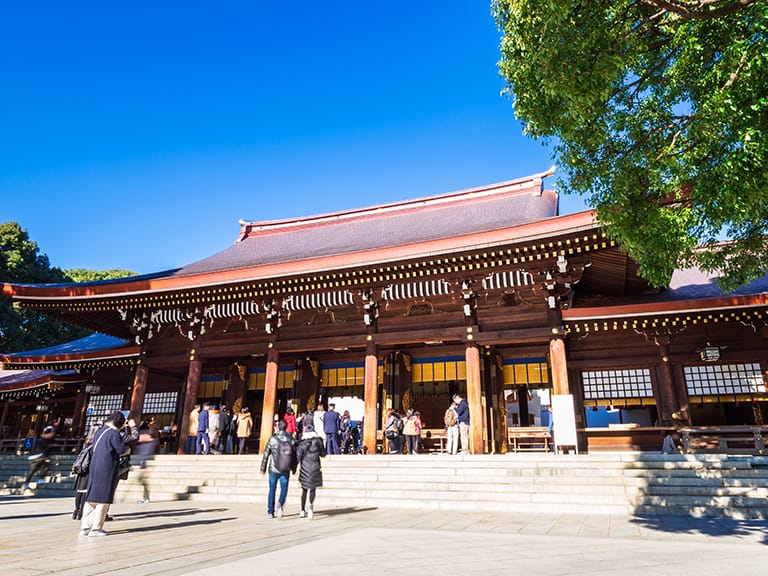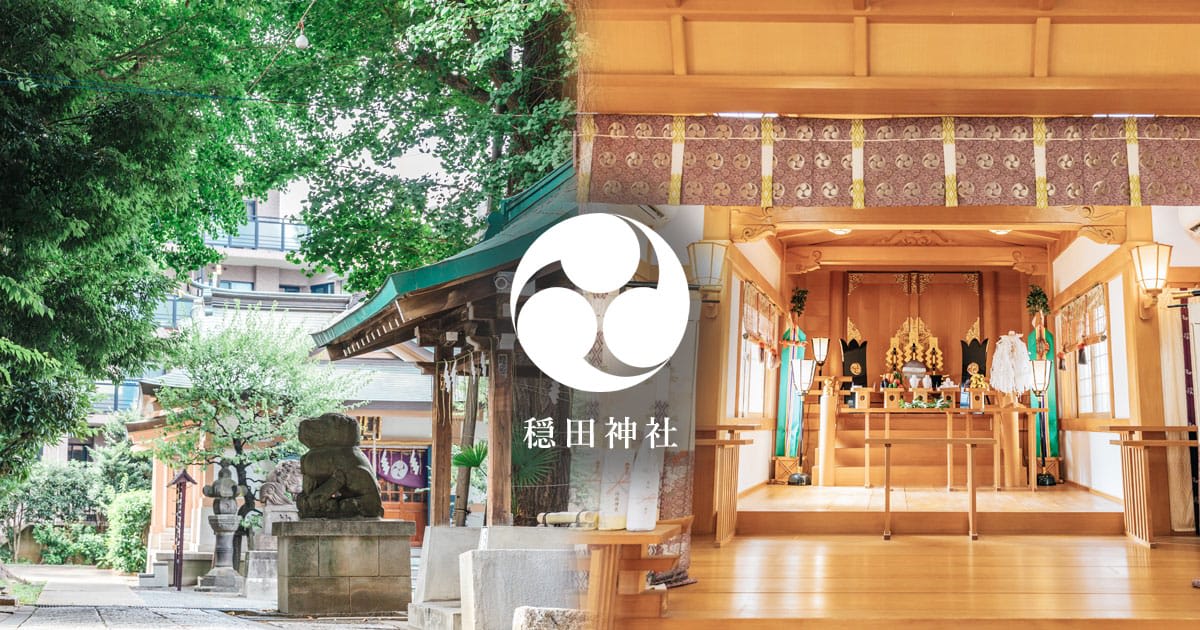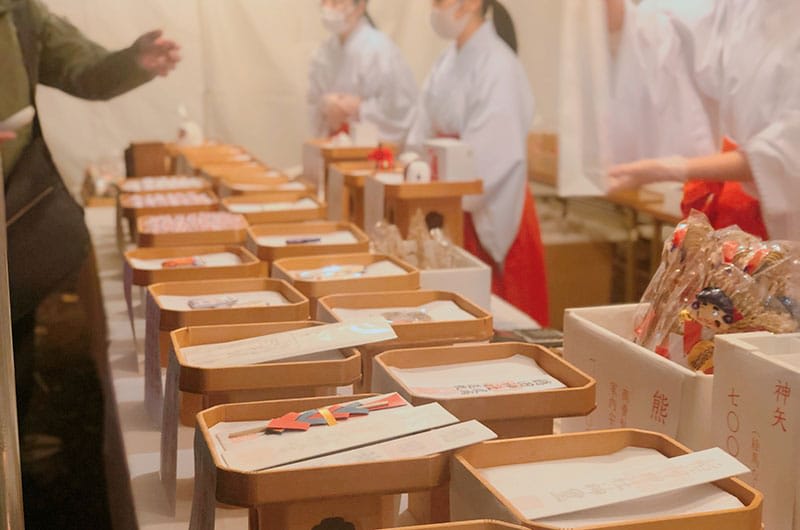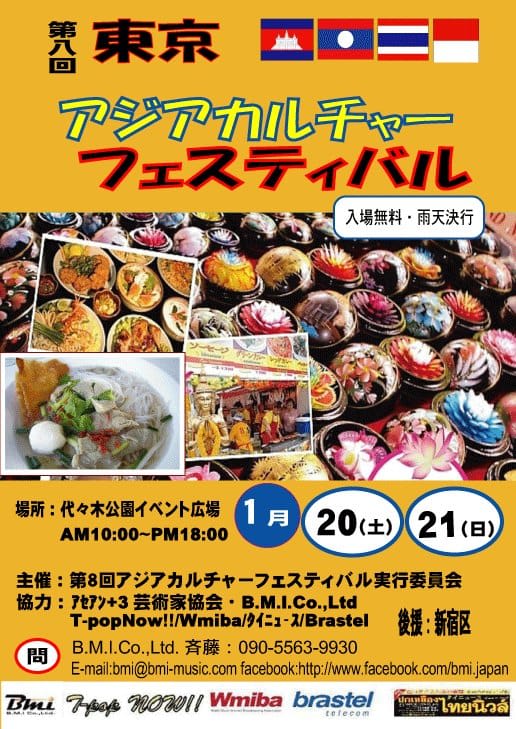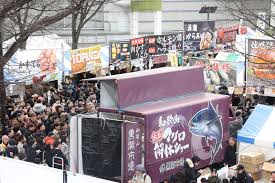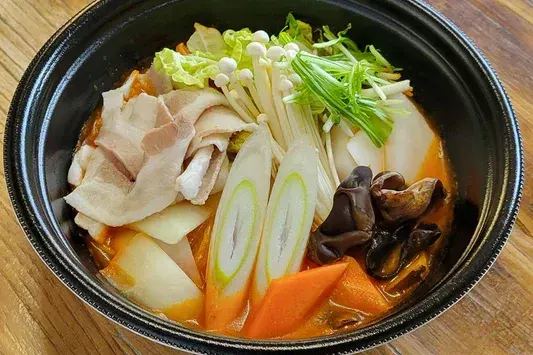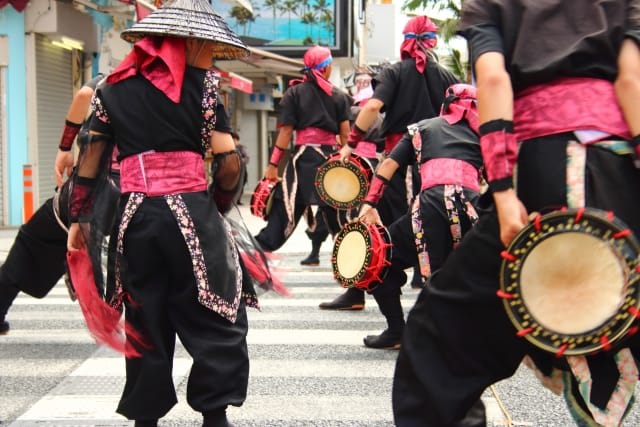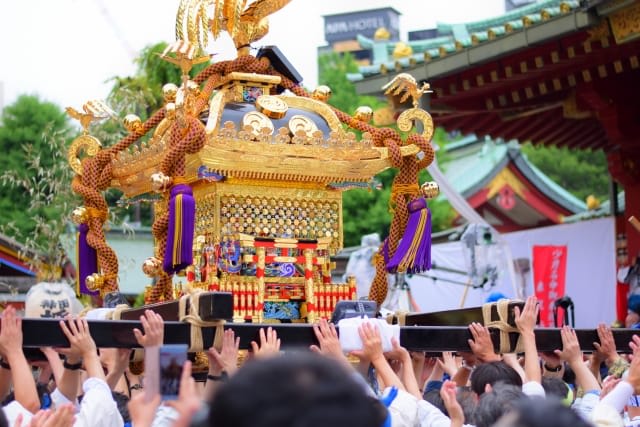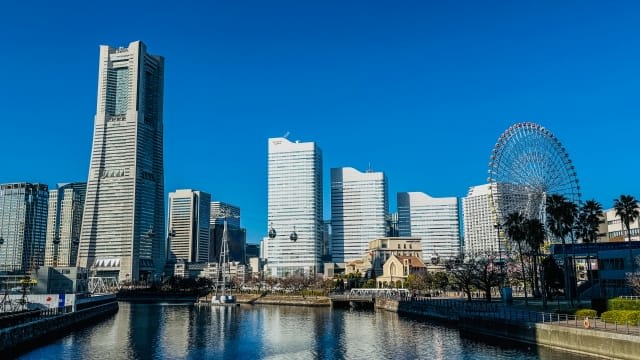Shibuya in January 2025: Highlights, Events & Festivals
I moved to Shibuya in 2024. While exploring the area, I discovered that Shibuya has numerous shrines, temples, and historical spots that are perfect for celebrating the New Year. As we enter January 2025, I've compiled this article with my rediscovered spots ideal for January visits in Shibuya, along with the latest 2025 updates.
Another reason for writing this is to introduce the increasingly popular Magical Trip tours. For those interested in Shibuya, I highly recommend the "Shibuya Bar Hopping Night Tour in Tokyo." Other than that, Magical trip has tour which ranked #1 among all TripAdvisor tours in 2024.("Tokyo Bar Hopping Night Tour in Shinjuku")

I've participated in both tours, and I can say that the "Shibuya Bar Hopping Night Tour in Tokyo" is just as impressive as the "Tokyo Bar Hopping Night Tour in Shinjuku." If you want to efficiently experience and deeply enjoy Shibuya's diverse cultural landscape, I highly recommend joining this tour.
If you want to enjoy all that Shibuya has to offer, check out the following articles in addition to this one! Below is Magical Trip's top-rated guide to a perfect night out in Shibuya.
Make the most of your night out in Shibuya with one of Magical Trip's top-rated articles below in hand.
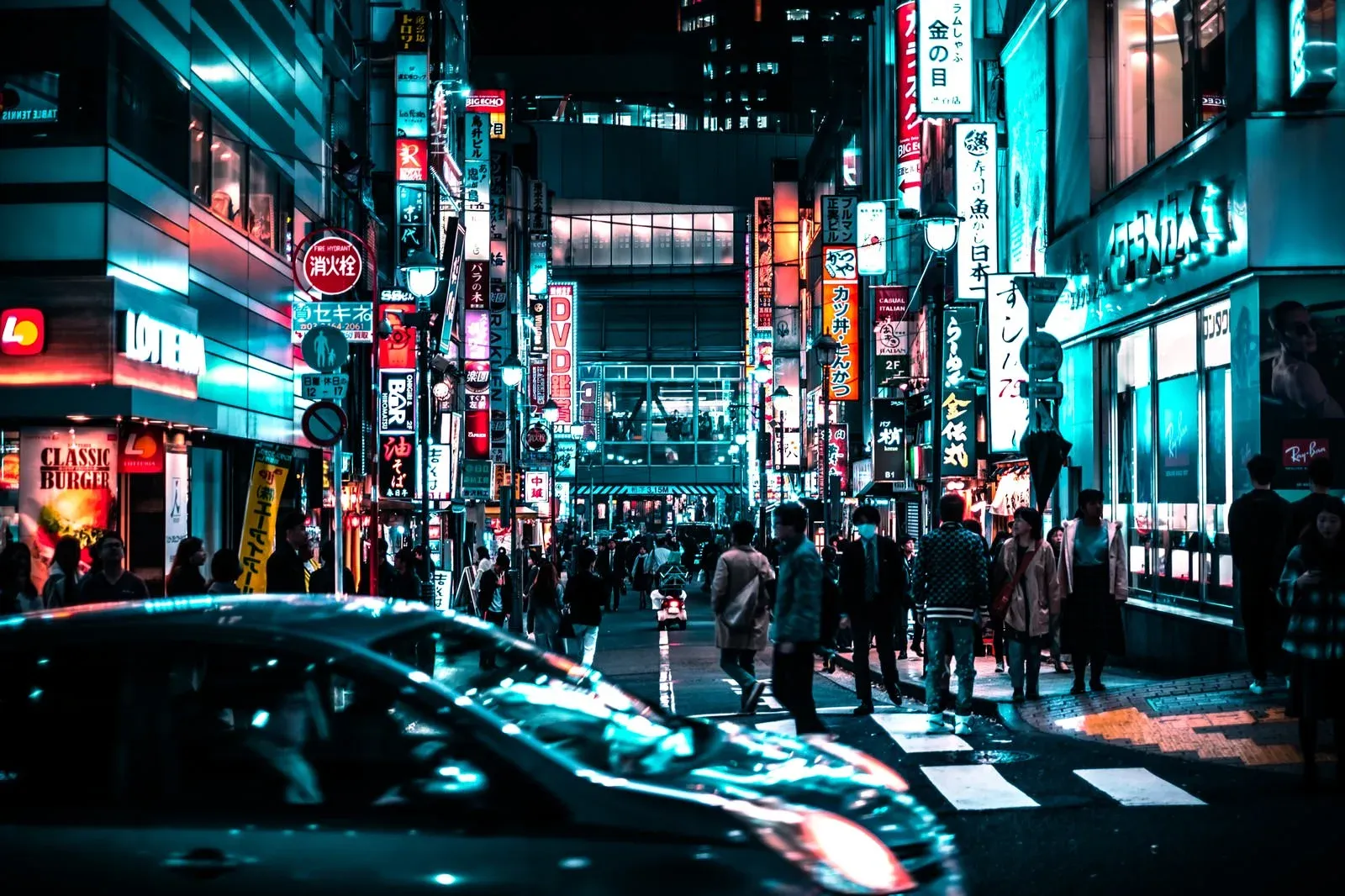
Introduction
January marks Tokyo's coldest period of the year. With temperatures ranging from around 5°C at their lowest to about 10°C at their highest, most people on the streets can be seen wearing thick outerwear, scarves, and gloves to stay warm.
Shibuya, one of Tokyo's premier entertainment districts, is renowned as "Wakamono no machi" (Young People's Town), where cutting-edge fashion and music converge. While Shibuya serves as a hub for contemporary culture, it also houses numerous traditional buildings such as shrines and temples, along with long-preserved traditional customs.
In January 2025, Shibuya offers various experiences, including traditional Japanese New Year shrine visits, Japanese-international cultural exchange events, and food events that are particularly enjoyable during the cold season.
This article will introduce the highlights, basic information, schedules, and access details for these events.
2025 Year-round Event Schedule in Shibuya↓
・Shibuya: List of Events & Festivals for 2025
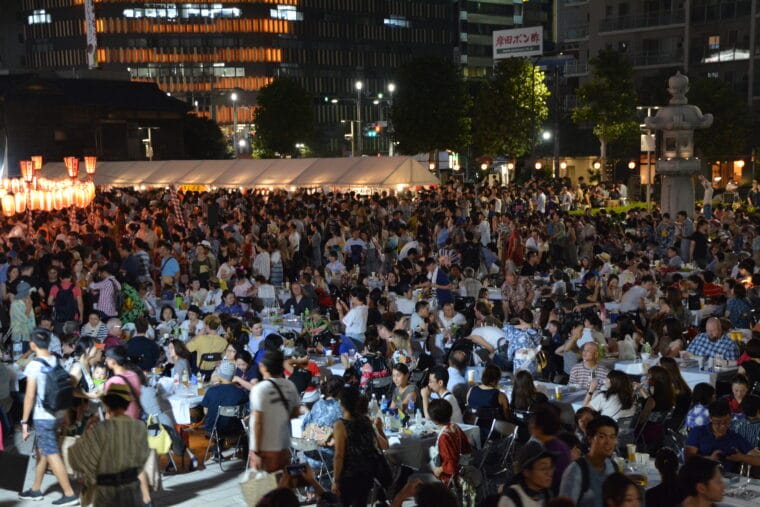
Traditional Events in Shibuya for January 2025
Hatsumode (January 1-7, 2025)
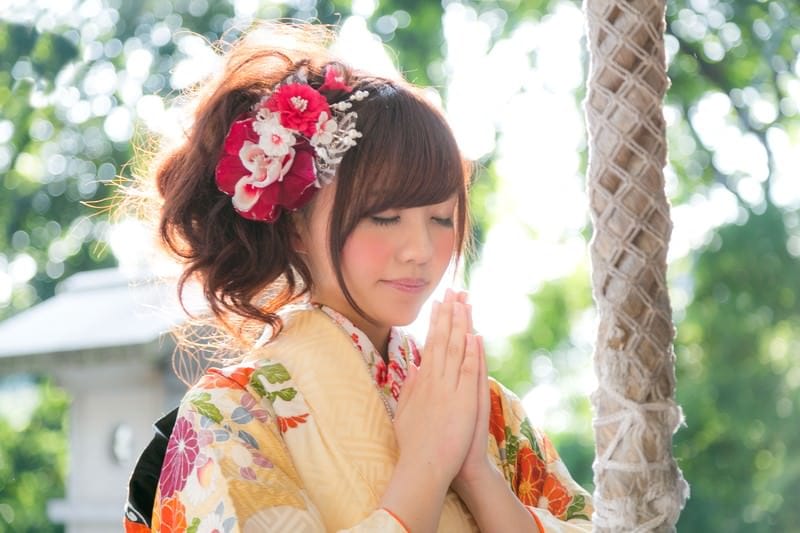
Hatsumode is a traditional Japanese custom of making the first shrine or temple visit of the New Year to pray for safety and peace in the coming year. During Hatsumode, people visit shrines with family and friends to set New Year's resolutions and draw Omikuji (fortune-telling papers) to learn about their prospects in areas such as health and romance.
Visitors also purchase Ofuda (talismans for home display) to pray for protection against misfortune for their families and homes, and Omamori (protective charms) to carry for protection against evil spirits and good health.
While there are no strict rules about when to perform Hatsumode, people can typically visit from midnight on January 1st, with most visitors making their visits between January 1st and January 7th.
Konnoh Hachimangu Shrine
Source: Official website
Konnoh Hachimangu Shrine enshrines Emperor Ojin, Japan's 15th emperor, as Hachiman Okami. Hachiman Okami is considered the guardian deity of Japan and the Imperial Household, and has been worshipped as an important deity throughout Japanese history.
Historically, Hachiman Okami was particularly revered by military commanders for success in battle. Today, Konnoh Hachimangu remains popular among visitors praying for career success, traffic safety, and conception.
The shrine also features several buildings and gates dating back approximately 400 years, many of which are designated as culturally significant properties by Shibuya Ward. When visiting for Hatsumode, take time to experience the shrine's rich history.
<Information>
Dates: Around January 1-7, 2025
Access: 5-minute walk from Exit C1 of Shibuya Station (JR, Tokyo Metro, Tokyu Railway, Keio Electric Railway)
Admission: Free
Website: https://www.konno-hachimangu.jp/index.html
Meiji Shrine
Source: Official website
Meiji Shrine (Meiji Jingu), established in 1920, is a shrine dedicated to Japan's 122nd Emperor Meiji and his consort, Empress Shoken. Emperor Meiji significantly contributed to Japan's development in various fields, including industry, public education, and foreign diplomacy, which led to the shrine's construction following strong public demand.
Meiji Shrine is known for its blessings in luck, academic success, and marital harmony. It has become one of Japan's most popular power spots. Despite being located in central Tokyo, the shrine's vast grounds and solemn atmosphere, surrounded by tall trees, are among its major attractions.
Meiji Shrine is famous for attracting the largest number of visitors in Japan during the New Year's period. Experience this traditional Japanese custom of Hatsumode (first shrine visit of the year) at Tokyo's most vibrant shrine during the Shibuya Event January 2025.
<Information>
Dates: January 1-7, 2025
Access:
- 1-minute walk from Meiji-jingumae Station (JR Yamanote Line, Tokyo Metro Chiyoda Line, Fukutoshin Line)
- 3-minute walk from Sangubashi Station (Odakyu Railway)
- 5-minute walk from Yoyogi Station (JR Yamanote Line, Sobu Line, Toei Oedo Line)
- 5-minute walk from Kitasando Station (Tokyo Metro Fukutoshin Line)
Admission: Free
Website: https://www.meijijingu.or.jp/
Onden Shrine
Source: Official website
Onden Shrine enshrines two deities: Omodaru no Kami, known for their graceful appearance, and Ayakashikone no Kami, celebrated for their refined features. As such, the shrine is popular for blessings related to beauty and marital harmony.
During the New Year's period, visitors pray for peace and happiness throughout the year and can purchase special lucky charms and kumade (lucky rakes) for business prosperity, available exclusively during this time.
I particularly recommend the colorful Daruma dolls in red, yellow, and green. The rounded Daruma dolls symbolize resilience - they always return upright when knocked down. In Japan, they're popular as lucky charms for business success and protection against illness.
Along with offering New Year prayers, don't miss the chance to acquire these traditional Japanese lucky items available only during this special Shibuya Event January 2025.
<Information>
Dates: January 1-7, 2025
Access:
- 5-minute walk from Exit 7, Meiji-jingumae Station (Tokyo Metro Chiyoda Line, Fukutoshin Line)
- 10-minute walk from Shibuya Station (JR, Tokyu Railways, Tokyo Metro)
- 10-minute walk from Harajuku Station (JR Yamanote Line)
Admission: Free
Website: https://onden.jp/
Saitan-sai Festival
Source: Official website
Saitan-sai is a New Year's celebration held at the aforementioned Onden Shrine, praying for the continued prosperity of Japan, the Imperial Family, and peace for the shrine's worshippers and local community. The festival begins at midnight on January 1st with the sound of Japanese drums announcing the arrival of the New Year.
During Saitan-sai, the shrine grounds are illuminated by gentle bonfires, creating a mystical atmosphere alongside the traditional shrine buildings.
Another attractive feature is the serving of amazake (a sweet fermented rice drink traditional to Japan). Drinking amazake on New Year's Day is believed to bring good health throughout the year. Despite having "sake" in its name, amazake is non-alcoholic and safe for children to enjoy.
As Shibuya nights in January can be quite cold, please dress warmly when participating in this special Shibuya Event January 2025 celebration.
<Information>
Date: January 1, 2025
Access:
- 5-minute walk from Exit 7, Meiji-jingumae Station (Tokyo Metro Chiyoda Line, Fukutoshin Line)
- 10-minute walk from Shibuya Station (JR, Tokyu Railways, Tokyo Metro)
- 10-minute walk from Harajuku Station (JR Yamanote Line)
Admission: Free
Website: https://onden.jp/
Special January Experience in Shibuya - For International Tourists
Asian Culture Festival
Source: Official Facebook
The Asian Culture Festival is an exciting Shibuya Event January 2025 featuring cuisine from various Asian countries, along with representative dance and musical performances from across Asia.
The highlight of the Asian Culture Festival is the authentic food stalls representing various Asian countries including China, South Korea, Thailand, and India. Visitors can enjoy Vietnamese cuisine such as banh mi, Thai cuisine including Gapao Rice, as well as Japanese favorites like Okonomiyaki and Yakisoba. This is a rare opportunity to experience signature dishes from both Japan and various Asian countries all in one place.
Don't miss the stage performances featuring traditional Asian arts such as Cantonese music from China and Tamil folk dance from India. The festival also includes booths introducing the history, culture, and traditional crafts of various Asian countries. We encourage you to experience this wonderful cultural exchange between Japan and other Asian nations.
<Information>
Date: Mid-January 2025
Access:
- 3 minutes walk from Harajuku Station (JR Yamanote Line)
- 3 minutes walk from Yoyogi Koen Station (Tokyo Metro Chiyoda Line)
- 3 minutes walk from Meiji-jingumae Station (Tokyo Metro Chiyoda Line, Fukutoshin Line)
- 6 minutes walk from Yoyogi Hachiman Station (Odakyu Line)
Admission: Free
OMOHARA Christmas illumination
Source: PR TIMES
OMOHARA Christmas Illumination is held at the rooftop terrace "Omohara no mori" of Tokyu Plaza Omotesando, a complex facility housing art galleries and fashion shops.
Commonly known as Omokado, Tokyu Plaza Omotesando, along with Harakado which opened in April 2024 across the intersection, has become a focal point for new cultural trends.
The OMOHARA Christmas Illumination decorates the trees and over 50 varieties of plants in "Omohara no mori" with approximately 20,000 lights. In addition to the illumination that sparkles like a starry sky, Christmas trees and ornaments including Reindeer are also decorated with lights. Don't miss this special night when a corner of Shibuya is enveloped in mystical light - an experience only available during this season.
<Information>
Date: November 10, 2024 - January 13, 2025
Access:
- 4 minutes walk from Harajuku Station (JR Line)
- 1 minute walk from Meiji-jingumae Station Exit 5
- 7 minutes walk from Omotesando Station Exit A2
Admission: Free
Website: https://omokado.tokyu-plaza.com/
Shibuya Gourmet Events in January 2025
Winter Festival! Local Sake & Local Dishes
Source: Official website
The "Winter Festival! Local Sake & Local Dishes" is a gourmet event where you can taste Japanese sake and compatible dishes from various regions of Japan. Due to the different specialties and food cultures across Japan, this Shibuya Event January 2025 provides a special opportunity to experience local delicacies from around the country.
At the festival, you can enjoy representative Japanese dishes such as Oden (a hot pot dish made with dashi broth), and karaage (Japanese fried chicken), which is a classic sake accompaniment. The event's charm also lies in the regional specialties like Osaka's famous takoyaki (octopus balls) and Nagoya's specialty tebasaki (chicken wings).
The highlight of the festival is the dynamic show where a skilled chef breaks down a giant tuna right before your eyes. Visitors can enjoy this luxurious experience by tasting the freshly cut tuna in a seafood bowl. We invite you to savor these exquisite Japanese dishes paired with local sake or Japanese beer.
<Information>
Dates: January 24-26, 2025
Access:
- 3 minutes walk from Harajuku Station (JR Yamanote Line)
- 3 minutes walk from Yoyogi Koen Station (Tokyo Metro Chiyoda Line)
- 3 minutes walk from Meiji-jingumae Station (Tokyo Metro Chiyoda Line, Fukutoshin Line)
- 6 minutes walk from Yoyogi Hachiman Station (Odakyu Line)
Admission: Free
Website: https://fuyumatsuri-japan.com/ (2024 website)
Local Hot Pot Festival
Source: Official website
The "Local Hot Pot Festival" features various types of Japanese nabe (hot pot) dishes from across the country, where meat and vegetables are simmered in large pots. This event is held jointly with the "Winter Festival! Local Sake & Local Dishes."
Hot pot dishes come in many varieties, from standard soy sauce and miso-based broths to unique regional variations. For example, Hokkaido, famous for its scallops, offers a hot pot rich with scallop broth and meat. Many other regions also showcase hot pots featuring their local specialties.
Notably, Yamagata's famous imoni (taro root stew), which won grand prix in 2023 and 2024, is exceptional. The soft, sticky texture of satoimo (taro root) perfectly complements the sweet shoyu-based broth. During Shibuya's cold winter, warm yourself up with these comforting hot pot dishes.
<Information>
Dates: January 24-26, 2025
Access:
- 3 minutes walk from Harajuku Station (JR Yamanote Line)
- 3 minutes walk from Yoyogi Koen Station (Tokyo Metro Chiyoda Line)
- 3 minutes walk from Meiji-jingumae Station (Tokyo Metro Chiyoda Line, Fukutoshin Line)
- 6 minutes walk from Yoyogi Hachiman Station (Odakyu Line)
Admission: Free
Two Recommended Tours to Experience Shibuya and Tokyo
Let me introduce you to the exciting bar hopping tours offered by MagicalTrip, perfect for international visitors wanting to explore Tokyo's nightlife.
Shibuya Bar Hopping Night Tour in Tokyo
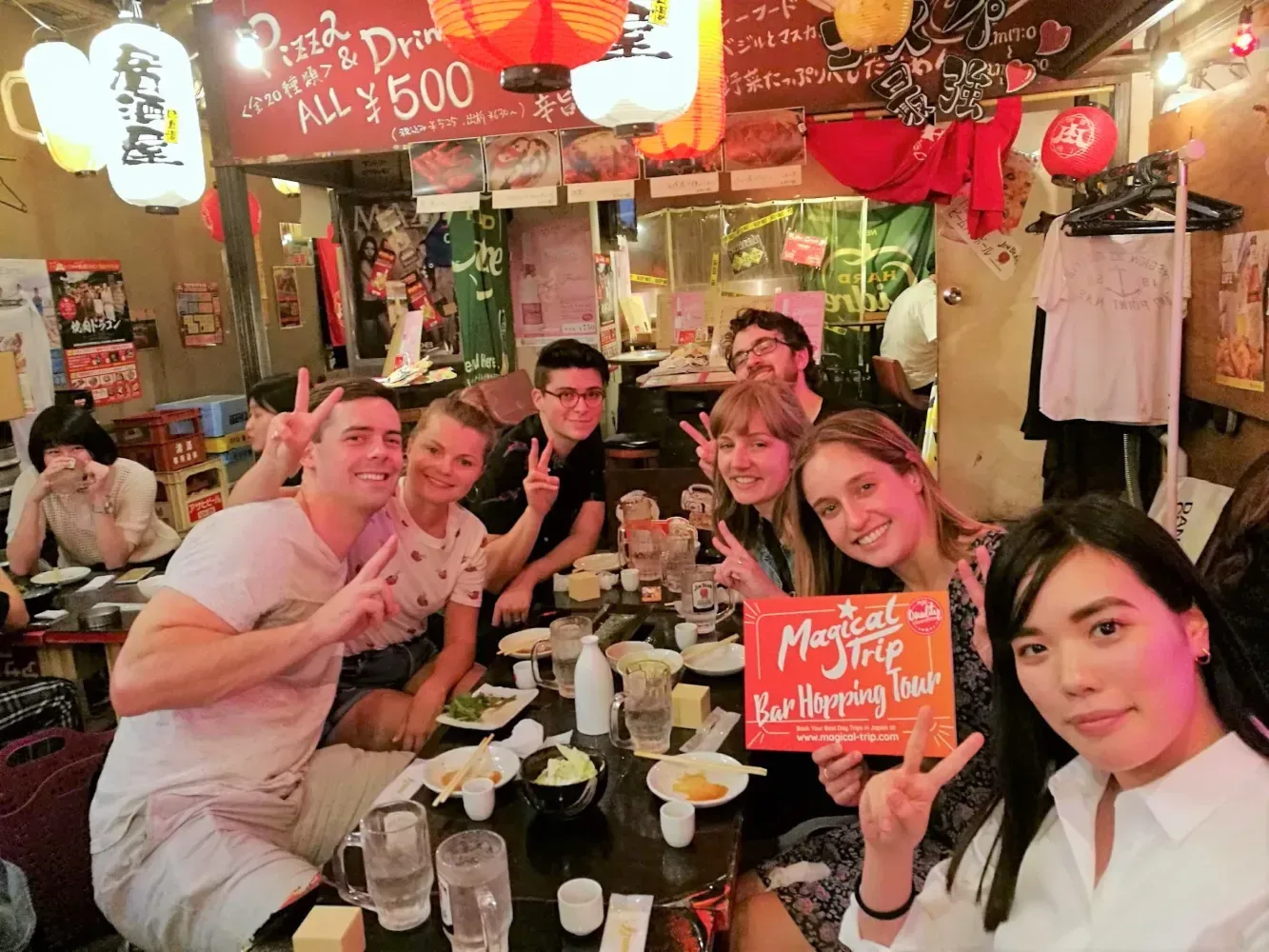
A 3-hour tour for $106.51 includes 4+ drinks (2 drinks at the first stop, all-you-can-drink at the second, and 1 drink at the third) and 3-4 substantial food dishes.
This tour is especially recommended for tourists staying in Shibuya hotels. With a local guide, you'll explore hidden food districts like Niku Yokocho and enjoy premium meat dishes such as wagyu, Kobe beef, and beef sushi at three different izakayas.
Open to participants aged 15 and above, with alcohol served only to those 20 and older. Vegetarian options are available, making it accessible for those with dietary restrictions.
The small group format allows for interaction with locals, and English-speaking guides ensure smooth communication. Meeting point is in front of TSUTAYA, a 3-minute walk from Shibuya Station's Hachiko Exit. Full refund available for cancellations made 24 hours in advance, and photo service included.
Details here: Shibuya Bar Hopping Night Tour in Tokyo
Tokyo Bar Hopping Night Tour in Shinjuku
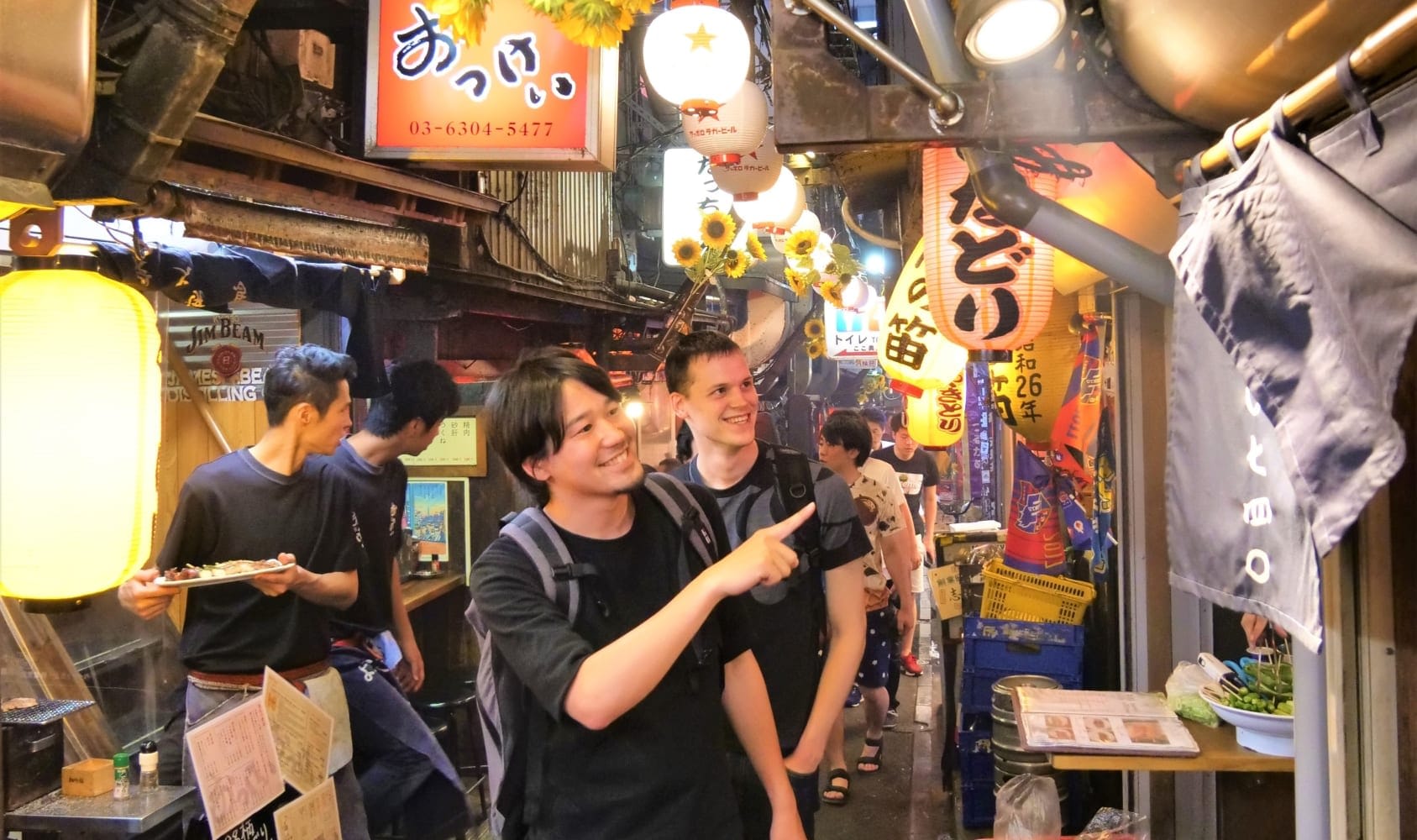
A 3.5-hour tour for $105.56 includes 4+ drinks and 3 food dishes. This popular tour has hosted over 20,000 participants and was ranked #1 among all Japanese experiences on TripAdvisor in 2024.
Visit three hidden izakayas in Shinjuku and enjoy local favorites like yakitori, gyoza, and agedashi tofu with plenty of food served. Explore different areas of Shinjuku including Omoide Yokocho and Kabukicho.
Open to participants aged 15 and above, with alcohol served only to those 20 and older. Vegetarian options available, and the tour welcomes solo travelers, friends, couples, and families.
English-speaking guides provide detailed menu explanations, and additional orders are welcome. Meeting point is at the black pillar next to UNIQLO Shinjuku West Exit Store, 7-8 minutes from Shinjuku Station's West Exit. Full refund available for cancellations made 24 hours in advance, and photo service included.
Details here: Tokyo Bar Hopping Night Tour in Shinjuku
These tours offer a unique opportunity to explore Tokyo's hidden gems with local guides, enjoying authentic cuisine and drinks while creating special memories through interactions with local people.
